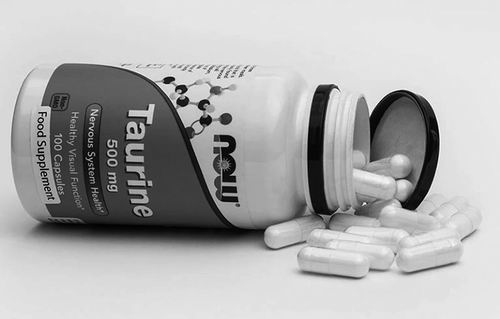Taurine makes animals live longer and healthier. Whether it can help human beings fight against aging is still uncertain

Previous studies have explored the role of Taurine in maintaining health. Image source: Christine Whitehead/Alamy
A study shows that feeding large amounts of Taurine (a common ingredient in health products and Energy drink) to old mice, worms and monkeys can make them live longer and healthier.
Researchers found that the level of natural amino acids related to health will decrease with the age of animals, and Taurine supplements may offset this loss, which is expected to delay age-related health problems. The relevant research was published in Science on June 8th.
Scientists warn that aging also involves many other factors, and it is currently unclear whether this research result applies to humans. But this study may provide a starting point for helping people maintain health and longevity in the future.
"We are considering carrying out a multi center, multinational intervention Human subject research." Research co-author Vijay Yadav, a geneticist at Columbia University in the United States, said at a press conference to discuss this work, "We are very happy to embark on this journey."
In the past 20 years, scientists around the world have increased their efforts to develop interventions to combat the health decline caused by aging.
Yadav and colleagues studied the changes in the levels of chemical substances related to aging in the blood, including metabolites, hormones and Micronutrient. They chose Taurine as their research object because previous studies have linked it with various aspects of animal and human health, including immunity, bone health and nervous system function.
The researchers measured the concentration of Taurine in the blood of mice, monkeys and humans, and found that its level decreased with age. For example, 15 year old monkeys have 85% less Taurine in their blood than 5 year old monkeys. It is currently unclear whether this decline is related to aging and whether it is only a result of aging. However, when the research team fed a group of mice with Taurine solution every day, compared with the control group without additional Taurine, the lifespan of female and male rodents increased by about 12% and 10% respectively.
Mice taking Taurine experienced several health changes, including increased muscle endurance and strength, decreased depression and anxiety related behaviors, and enhanced immune system.
The researchers also provided food containing Taurine to Caenorhabditis elegans and middle-aged rhesus monkeys. The average lifespan of worms fed with Taurine was longer and healthier than that of the control group. Monkeys, on the other hand, have lighter weight, higher bone density, and less obvious signs of liver damage.
Herminia Pasantes, a biologist at the National Autonomous University of Mexico, said that this result was consistent with research at the cellular level, indicating that "Taurine is a protective agent for cells and can promote cell survival". She praised the research for exploring this principle in organisms. However, she warned that aging is complex, and Taurine itself or lack of Taurine is not the cause of inducing or driving aging.
Another concern of Pasantes is that the mice in the experiment were given a higher dose of Taurine than their body weight - if used in humans, this level of Taurine may far exceed the recommended safe consumption limit. Yadav said that when calculating dose, other variables other than body weight should be considered, such as animal oxygen consumption, calorie expenditure, and blood volume.
The team fed the mice 15 to 30 mg of Taurine every day, depending on their age. "These doses are equivalent to feeding a human weighing 80 kg with 3 to 6 grams of Taurine." Yadav said that according to the recommendations of the European Food Safety Authority, this is within the safe range. A typical Energy drink contains about 1 gram of Taurine.
Steven Karpowicz, a biochemist at the American East University of New Mexico, pointed out that although animal studies showed that Taurine was related to aging, no causal relationship was directly observed. "There may be one or more metabolites related to Taurine or derived from Taurine related to the molecular mechanism of aging," he said
The authors acknowledge that the chemical mechanism of Taurine affecting cells at the molecular level is still unclear. At the press conference, Yadav said that they do not recommend people to take over-the-counter Taurine supplements to maintain health or slow down aging.
Related paper information: https://doi.org/10.1126/science.abn9257


 Unit 302B, North Business Building, No. 6 Huli Avenue Xiamen Area, China (Fujian) PilotFree Trade Zone
Unit 302B, North Business Building, No. 6 Huli Avenue Xiamen Area, China (Fujian) PilotFree Trade Zone 0086-592-7897893
0086-592-7897893 0086 180-5988-7747
0086 180-5988-7747 seven.lou@taurinebio.com
seven.lou@taurinebio.com